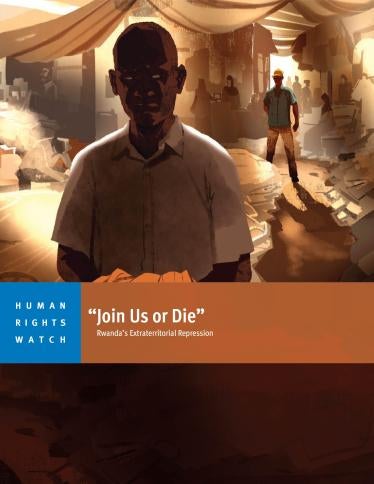After the Storm
A new web feature looks at climate change, planned relocation, and people with disabilities in Siargao, Philippines.
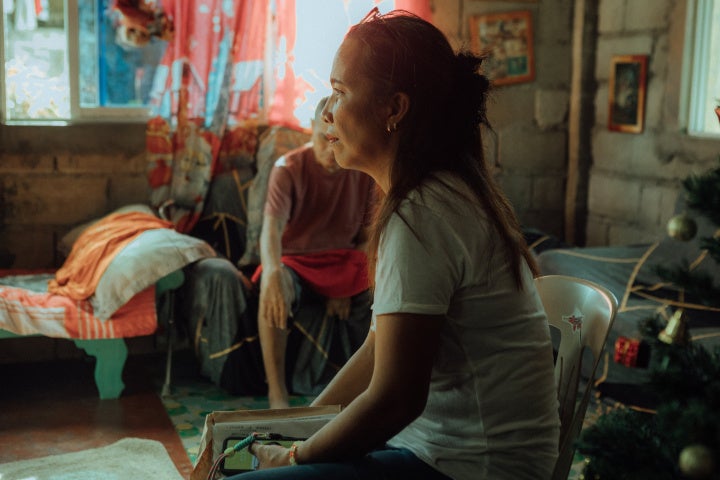
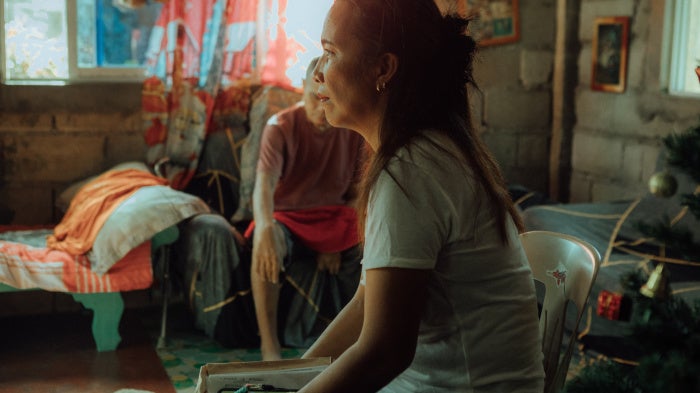
A new web feature looks at climate change, planned relocation, and people with disabilities in Siargao, Philippines.


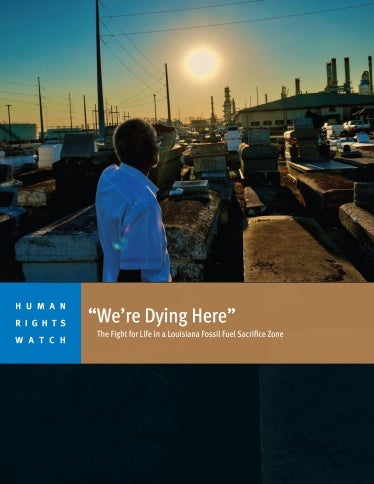
The 51-page report, “Meta’s Broken Promises: Systemic Censorship of Palestine Content on Instagram and Facebook,” documents a pattern of undue removal and suppression of protected speech including peaceful expression in support of Palestine and public debate about Palestinian human rights. Human Rights Watch found that the problem stems from flawed Meta policies and their inconsistent and erroneous implementation, overreliance on automated tools to moderate content, and undue government influence over content removals.
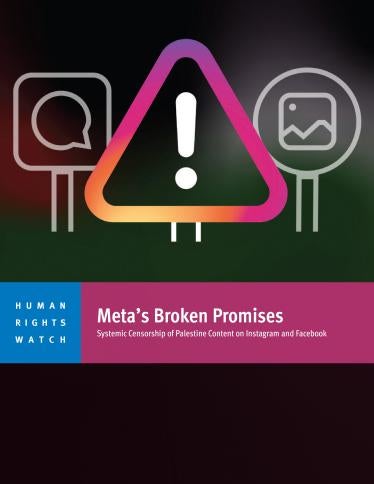
The 63-page report, “‘Abused by Relatives, Ignored by the State’: Domestic Violence against and Neglect of Women and Girls with Disabilities in Kyrgyzstan,” documents how violence by family members or partners often goes unreported and unaddressed due to widespread discrimination against people with disabilities in Kyrgyzstan, especially women and girls. Families often perceive their existence as shameful and hide them from society. Law enforcement and judicial bodies often ignore or downplay reported cases, and a shortage of shelters and other services for survivors of domestic violence who have disabilities makes it harder for them to escape abuse.
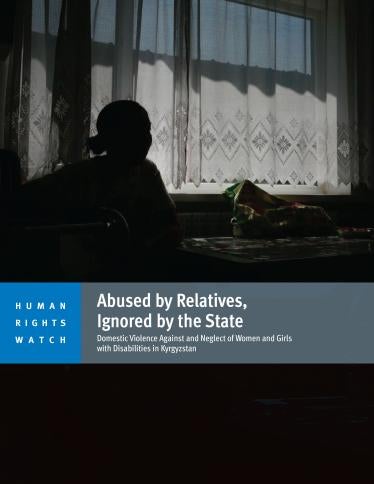
The 45-page report, “‘Death is More Merciful Than This Life’: Houthi and Yemeni Government Violations of the Right to Water in Taizz,” found that parties to the conflict in Yemen have significantly exacerbated the area’s water crisis. The Houthis have weaponized water in Taizz by blocking water from flowing into Yemeni government-controlled Taizz city, while Yemeni government-affiliated military forces have previously sold public water supplies to residents for their own profit.
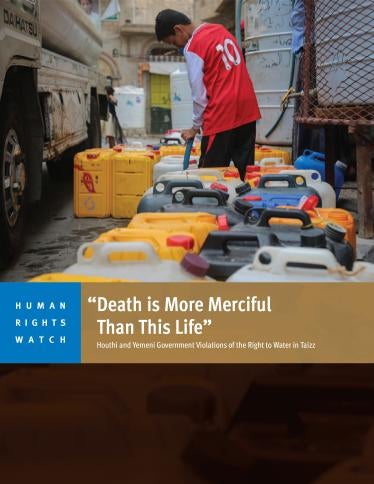
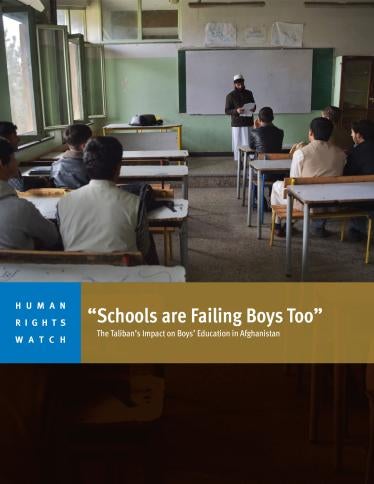
The 24-page report, “‘You Can Smell Petrol in the Air’: UAE Fossil Fuels Feed Toxic Pollution” documents alarmingly high air pollution levels in the UAE, which create major health risks for its citizens and residents and contribute to the global climate crisis. The UAE is one of the world’s largest oil producers and home to seven so-called “carbon bombs,” the world’s largest fossil fuel production projects. Air pollution and climate change are directly linked, as the burning of fossil fuels contributes to air pollution and drives climate change.
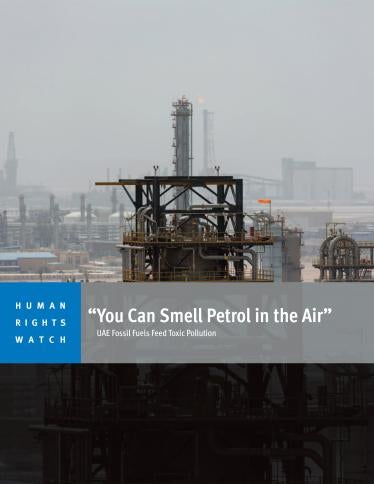
The 76-page report, “So Much Blood on the Ground: Dangerous and Deadly Vehicle Pursuits under Texas’ Operation Lone Star,” documents the spike in vehicle chases by Texas Department of Public Safety troopers and local law enforcement in the 60 most heavily affected Texas counties implementing Governor Greg Abbott’s Operation Lone Star program. Records reveal that in several counties, unnecessary vehicle chases have increased by over 1,000 percent since the program began. Human Rights Watch found that residents in these counties are disproportionately affected by law enforcement vehicle pursuits and crashes.

To demonstrate an effective, alternative approach, Human Rights Watch partnered with Gerstein Crisis Centre, a community-based mental health crisis response center in Toronto that provides services that are consent-based, nonmedical, trauma-informed, and focused on harm reduction. The 33-page case study, Mental Health Crisis Support Rooted in Community and Human Rights, presents a viable, replicable framework for a holistic approach to mental health crisis response that supports the autonomy of the individual in crisis.
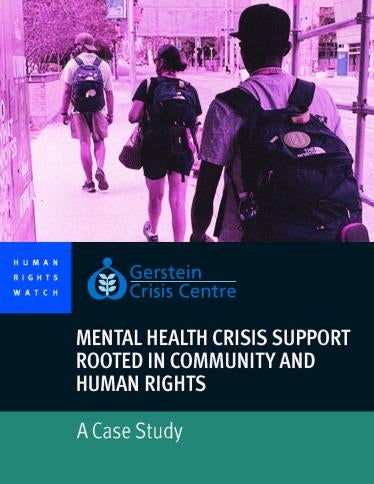
The 76-page report, “‘They Don’t Treat Us like Human Beings’: Abuse of Imprisoned Women in Japan,” documents the abusive conditions in many women’s prisons in Japan. Government policies towards women in prison violate international human rights conventions and contravene international standards such as the United Nations Standard Minimum Rules of the Treatment of Prisoners, known as the Mandela Rules. Prison authorities use restraints on imprisoned pregnant women, arbitrarily employ solitary confinement as a form of punishment, verbally abuse women in prison, deny incarcerated women’s opportunities to parent their child in prison, and fail to provide adequate access to health and mental health care.
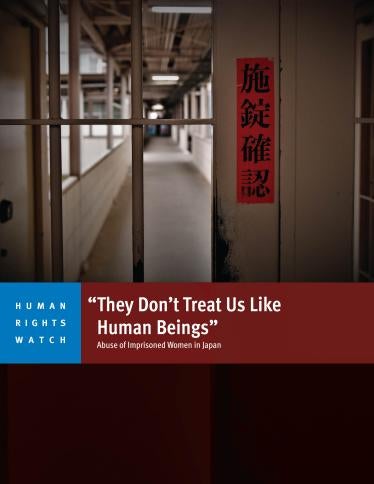
The 71-page report, “Tanks on the Playground,” documents the damage and destruction of schools and kindergartens in four Ukrainian regions during the first months of the fighting. Most of the damage to educational facilities resulted from aerial attacks, artillery shelling, rocket strikes, and, in some cases, attacks using cluster munitions – causing significant damage to roofs, the collapse of walls, and major debris in classrooms. Russian forces frequently looted and pillaged schools they occupied, a war crime.
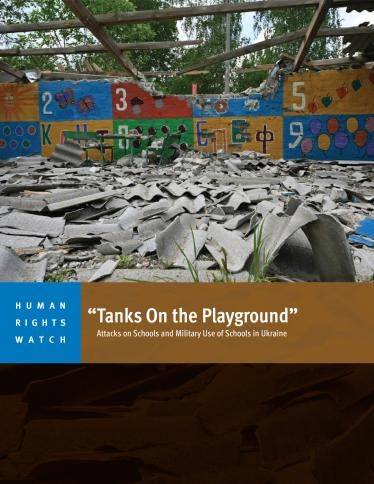
The 62-page report, “‘This Hell Was My Only Option’: Abuses Against Migrants and Asylum Seekers Pushed to Cross the Darién Gap,” is the first in a series of Human Rights Watch reports on migration via the Darién Gap. Human Rights Watch found that restrictions on movement from South American countries to Mexico and Central America, often promoted by the United States government, have helped contribute to sharp increases in numbers of people crossing the Darién Gap. This exposes migrants to abuses, including sexual violence, and empowers organized crime in the area.
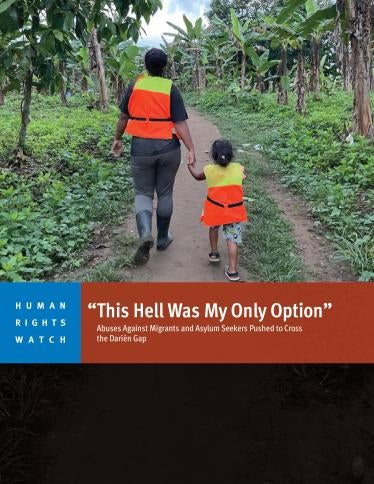
In the 19-page report, “‘They Promised to Kill 30’: Police Killings in Baixada Santista, São Paulo State, Brazil,” describes the important failures in the initial steps of police investigations. Law enforcement officers initiated the so-called Escudo (“shield”) operation in Baixada Santista, a metropolitan area on the coast of São Paulo state, on July 28, 2023, in response to the killing of an officer in the city of Guarujá. By September 5, when the operation ended, the military police had killed 28 people, making it one of the deadliest police operations in São Paulo state in 3 decades. Another three officers were also injured during the operation.
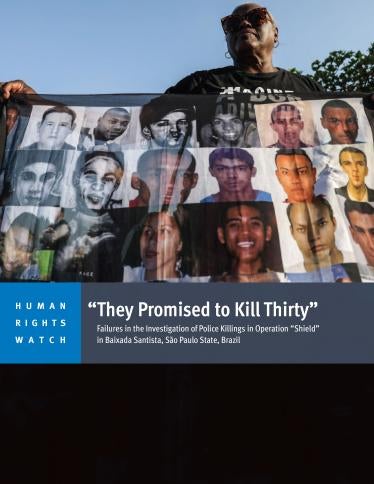
The 22-page report, “‘Working On Oil is Forbidden’: Crackdown Against Environmental Defenders in Uganda” documents the Ugandan government’s restrictions on freedom of expression, association, and assembly related to oil development, including the planned East African Crude Oil Pipeline (EACOP). Civil society organizations and environmental defenders regularly report being harassed and intimidated, unlawfully detained, or arbitrarily arrested.
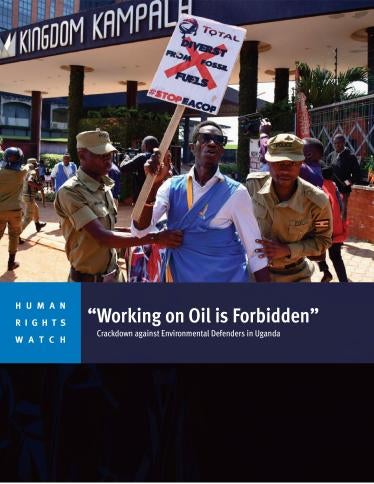
The 21-page report, “‘We Still Haven’t Recovered’: Local Communities Harmed by Reclamation Projects in the Maldives,” documents how the Maldives government has failed to consult local communities ahead of development projects, heed environmental impact assessment (EIA) mitigation requirements, and provide resources for ongoing monitoring of development projects in the northern island of Kulhudhuffushi and the southern atoll of Addu. These deficiencies have further harmed residents already at risk from the effects of changing weather patterns and rising sea levels, loss of biodiversity, coastal erosion, and increased flooding.
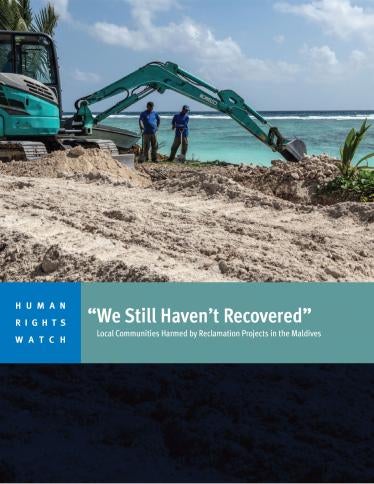
In the 115-page report, “‘Join Us or Die’: Rwanda’s Extraterritorial Repression,” Human Rights Watch documents a wide array of tactics that, when used together, form a global ecosystem of repression, aimed not only to muzzle dissenting voices but also to scare off potential critics. The combination of physical violence, including killings and enforced disappearances, surveillance, misuse of law enforcement – both domestic and international – abuses against relatives in Rwanda, and the reputational damage done through online harassment constitute clear efforts to isolate potential critics.
